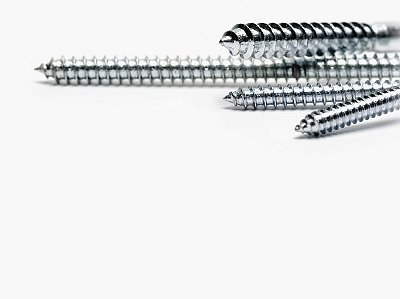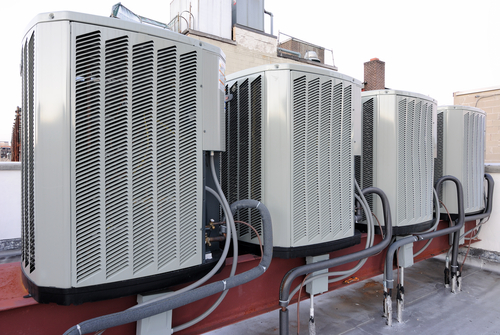Digital Viscometer Key to Corrosion Resistance and Building Safety
Admin
Recent Posts
Digital Viscometer Key to Corrosion Resistance and Building Safety
Feb 16, 2017 10:05:00 AM / by Admin posted in process viscometers, viscosity control, coating viscosity, Coating
Coating Viscosity Measurement Improves Molding Compound Process
Feb 13, 2017 10:09:00 AM / by Admin posted in VISCOpro2000, process viscometers, viscosity control, coating viscosity, Coating
Coating Viscosity Measurement Improves Molding Compound Process
Boston—Cambridge Viscosity’s advanced sensor technology is helping Cytec Engineered Materials streamline production of composite materials used in aerospace, high-performance industrial and
other extreme-demand environments.
Cytec supplies composite materials such as prepregs and molding compounds to companies that mold parts. The ratio of resin-to-fiber is very important, with different applications requiring different ratios. Cambridge’s ViscoPro 2000 viscometers are used to control the viscosity of a resin solution that binds the carbon fiber. Strings of carbon fiber are run through a resin bath where they are coated, and the resin acts as a binder for the carbon fiber so that it can be molded into a part.
“The implementation of the viscometer system has enabled us to continually monitor and control the resin, which allows us to greatly reduce variation within the product,” says Cytec Engineer Troy Farry. Prior to using the viscometers, technicians were required to take measurements at certain intervals in order to determine if adjustments to the resin characteristics were necessary.
This method created a delay in reaction time, resulting in a great deal of variation that made it harder to remain within customer requirements. According to Farry, “not only have the viscometers allowed for a more consistent product, they have reduced the error and scrap rate of our material. By streamlining the process, our technicians can now focus on other areas of development, instead of having to manually monitor the process.”

About Cambridge Viscosity
Cambridge Viscosity is the leading supplier of automated viscometers used by oil exploration and refining, coating, chemical and life science companies to optimize product and process performance. Cambridge Viscosity's sensors and viscometer systems conform to ASTM, DIN, JIS and ISO standards, with a range of models designed to meet specific industry and application needs.
Type certifications include ATEX, CE and FM. CSA certification is available upon request. Cambridge's global reach provides application engineering support and service wherever and whenever needed. To learn more visit www.cambridgeviscosity.com.
Small Sample Viscometer Optimizes R&D Enzyme and Protein Formulations
Feb 9, 2017 2:36:00 PM / by Admin
Boston—Cambridge Viscosity today announced that a U.S.-based industrial enzymes developer has purchased a ViscoLab 4000 viscometer. The company plans to use the small sample viscometer to monitor viscosity in enzyme and protein formulations.
An R&D representative from the company said they chose the ViscoLab 4000 because it is easy to use and meets their need for small sample sizes. “The sensor is very easy to operate. You simply drop the piston into the chamber and you get a viscosity reading. There is no need to reset the parameters for each assay.” Requiring less than 2 ml of sample, the viscometer will help to conserve sample and labor time associated with preparing the sample materials. “The new viscometer will allow us to monitor viscosity quickly, while using smaller amounts of sample material,” he said.
The ViscoLab 4000 supports up to 12 viscosity ranges and up to 10,000 cP, while providing accurate measurements at near-ambient temperatures. It features sophisticated electronics that allow users to define temperature/viscosity display units, data averaging interval and density. The small sample viscometer is particularly well suited for life science and pharmaceutical applications such as siRNA , drug development, protein formulation and delivery studies.
Chevron Updates Older Viscosity Systems for Better Product Reliability
Feb 6, 2017 9:00:00 AM / by Admin posted in process viscometers, lube oil, lube oil viscosity, refining
FOR IMMEDIATE RELEASE
Cambridge Sells Ultra High Pressure Viscometer to Japanese Oil Giant
Feb 2, 2017 11:30:00 AM / by Admin posted in PVT, Exploration, high pressure viscometer
FOR IMMEDIATE RELEASE
Online Viscometer Ideal for Gas Compressor Lubrication Oil
Jan 30, 2017 10:10:00 AM / by Admin posted in process viscometers, lube oil, 392 sensor, lube oil viscosity, oil analysis, compressor viscosity
FOR IMMEDIATE RELEASE
NTPC India Uses Small Sample Viscometer to Monitor Lube Oils
Jan 26, 2017 2:28:00 PM / by Admin posted in oil viscosity, lube oil viscosity, small sample viscometer, oil analysis, VISCOlab4000, India, Asia Pacific
NTPC, India’s largest thermal power generation company, has purchased a Cambridge Viscosity small sample viscometer, VISCOlab 4000, monitor lubrication oils. NTPC uses large quantities of a variety of oils—lube, fuel, diesel, transformer and gear oil— to operate machinery in their plant. The company will use the laboratory viscometer to verify the quality of inward petroleum material.
CVI Compressor Viscometer Used As Industry Standard Worldwide
Jan 23, 2017 10:00:00 AM / by Admin posted in process viscometers, 501 sensor, 571 sensor, refining, compressor viscosity, refrigerant viscosity
Boston—Cambridge Viscosity compressor viscometers have become the refrigerant industry standard worldwide. Compressor manufacturers are always looking for ways to improve their products and enhance energy efficiency, while also using more environmentally friendly refrigerants. Viscosity is an important metric, as the ideal refrigerant blend allows for optimal output of the compressor.
EOR Polymer Viscosity Management Key to Maximum Oil Production
Jan 9, 2017 9:00:00 AM / by Admin posted in process viscometers, Exploration, polymers, EOR, in-line viscometers
Boston, MA – “Maximizing oil production while minimizing EOR polymer costs is our objective,” says the lead engineer for one of Canada’s largest oil exploration and production (E&P) companies. Polymer viscosity management has become a hot topic in the industry during recent months. Polymers enable injected water to better match the viscosity of reservoir oil, which improves the water penetration into the rock pores to improve oil production. If the polymer solution is not balanced for the reservoir oil conditions, production can drop substantially, negating the benefits of the Enhanced Oil Recovery (EOR) process.
This Canadian E&P company is working with Cambridge Viscosity to dynamically manage the viscosity of their EOR polymers at the wellhead to maximize oil production, while reducing the amount of EOR polymer needed. They typically use one polymer mixing station and five platforms for polymer injection, with one platform for oil recovery for each oil well. The project utilizes Cambridge in-line process viscometers at the blending and injecting locations to measure the viscosity of the polymer solutions. Viscosity information is sent to a centralized control facility where the polymer solution viscosities can be fine-tuned to maximize oil production.
The company selected Cambridge viscometers because they are accurate, rugged, vibration insensitive and compact enough to be installed in confined spaces. The viscometers are also well suited for the hazardous locations in which they are typically mounted. PAC Sales Manager Jonathan Cole says “The expected return on investment for our E&P counterparts is substantial. This particular oil company expects a 20% increase in the amount of oil extracted and a significant reduction in the amount of food grade polymer they have to purchase.”
About Cambridge Viscosity
Cambridge Viscosity, the leader in compact, small sample viscometers, sets the standard for extraordinarily precise, reliable and low maintenance viscosity measurement equipment, and control systems. Patented oscillating piston technology ensures accurate, true results across a broad range of lab and in-line applications, including refining and petrochemicals, oil and gas, coatings, paints and inks and pharmaceuticals.
Cambridge Viscosity's sensors and viscometer systems conform to ASTM, DIN, JIS and ISO standards, with a range of models designed to meet specific industry and application needs. Certifications include ATEX, CE, and FM. CSA certification is available upon request. Our global reach is important for providing engineering support and service wherever and whenever needed. For additional information visit: www.cambridgeviscosity.com










